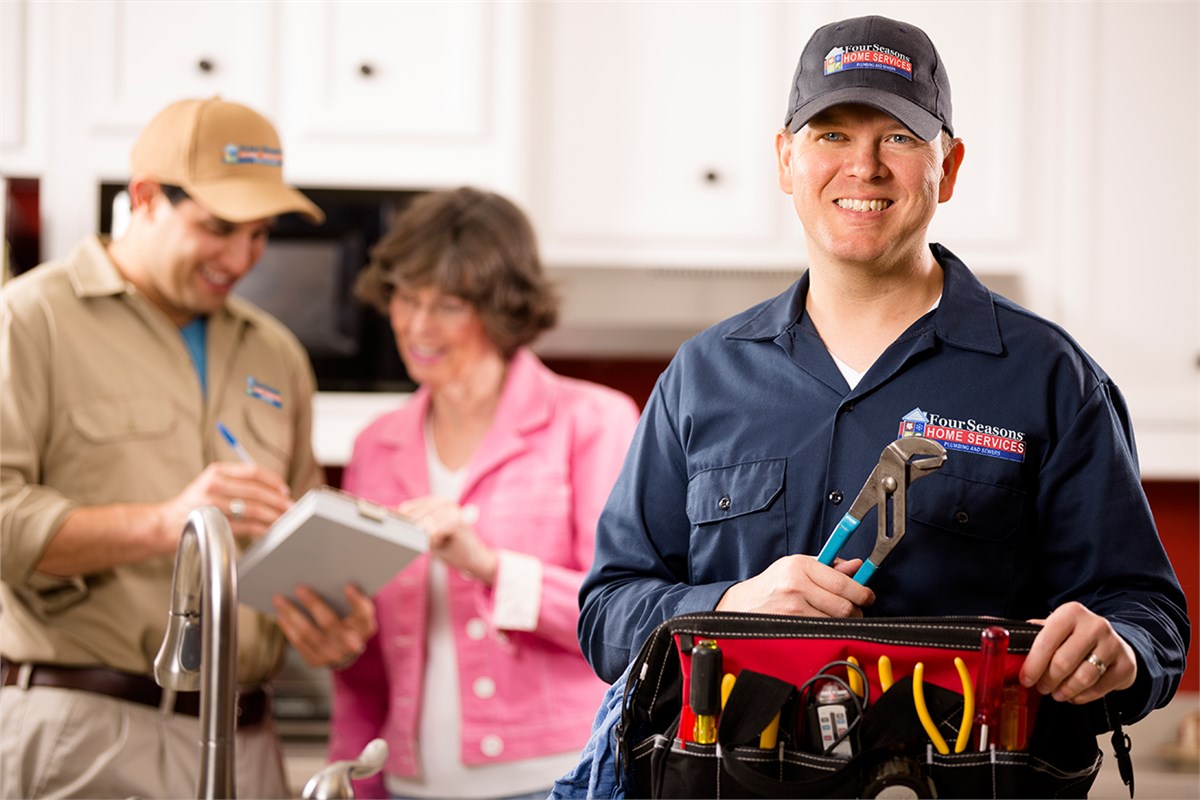
Image Source: Google
Household emergencies can strike at any time, and one of the most common issues homeowners face is plumbing problems. From burst pipes to clogged drains, these emergencies can cause significant damage to your home if not addressed promptly. In such situations, having access to emergency plumbing services can be a lifesaver. This guide will provide you with valuable information on how to handle household plumbing emergencies effectively.
Common Household Plumbing Emergencies
It's essential to be aware of the most common plumbing emergencies that can occur in your home. Here are some of the issues that may require emergency plumbing services:
- Burst or leaking pipes
- Clogged drains or toilets
- Water heater malfunctions
- Sewage backups
- Frozen pipes
Steps to Take During a Plumbing Emergency
1. Shut Off the Water Supply
As soon as you notice a plumbing emergency, the first step is to turn off the main water supply to prevent further water damage. Locate the shut-off valve in your home and make sure all family members know its location.
2. Contact an Emergency Plumbing Service
Once the water supply is off, contact a reputable emergency plumbing service immediately. Describe the nature of the problem and provide any relevant details to ensure they can respond quickly and effectively.
3. Take Precautions to Minimize Damage
While waiting for the plumber to arrive, take any necessary steps to minimize damage to your property. This could include mopping up excess water, moving valuable items to a dry area, or placing buckets under leaks.
4. Follow the Plumber's Instructions
When the plumber arrives, follow their instructions closely to help resolve the issue efficiently. Provide them with any additional information they may need and ask questions if you're unsure about any aspect of the repair process.
Choosing the Right Emergency Plumbing Service
Not all plumbing services are equipped to handle emergencies, so it's essential to choose the right one for your needs. Here are some factors to consider when selecting an emergency plumbing service:
- 24/7 Availability: Ensure the plumbing service offers round-the-clock emergency assistance.
- Experience and Expertise: Look for a company with experienced plumbers who specialize in handling emergency situations.
- Response Time: Choose a service that can respond quickly to your call and arrive promptly at your home.
- Licensing and Insurance: Verify that the plumbing service is licensed, insured, and follows industry regulations.
- Customer Reviews: Check online reviews and testimonials to gauge the reputation of the plumbing service.
Preventive Measures to Avoid Plumbing Emergencies
While emergencies can occur unexpectedly, there are steps you can take to minimize the likelihood of experiencing a plumbing issue. Here are some preventive measures to consider:
- Regular Maintenance: Schedule routine maintenance checks for your plumbing system to catch any potential problems early.
- Proper Disposal: Avoid flushing items like paper towels, wipes, or grease down the drain, as they can cause clogs.
- Insulate Pipes: Protect your pipes from freezing by insulating them in cold weather to prevent bursts.
- Monitor Water Pressure: Keep an eye on your water pressure to detect any fluctuations that may indicate a leak or other issues.
- Know Your Plumbing System: Familiarize yourself with the layout of your plumbing system and learn how to shut off the water supply in case of emergencies.
By following the tips outlined in this guide, you can be better prepared to handle household plumbing emergencies and mitigate potential damage to your home. Remember that quick action and the right emergency plumbing service can make all the difference in resolving plumbing issues effectively.

